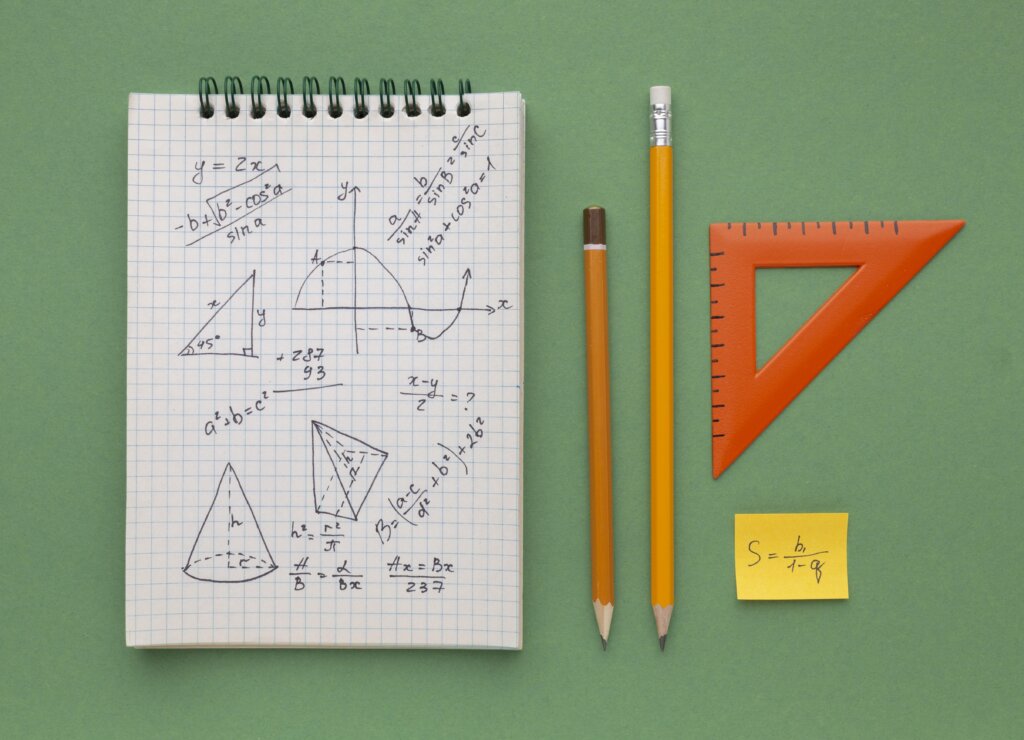In India, there are a plethora of curricula available. This makes it hard to navigate the different curricula to determine the best fit for your child. Here is a general overview of each of the curricula and some questions that most of our applicants end up asking us.
What are Advanced Placement (AP) exams?
The College Board’s Advanced Placement (AP) exams offer high school students a chance to study college-level curricula in specific subjects. In total, there are 38 APs from which students can choose. If a student scores high in their AP exams, US universities may grant course credit against these grades.
APs are popular in the US, and students usually start the AP curricula after grade 10. Students outside the US can also take these exams by registering through the College Board website. However, these courses aren’t included in most curricula, so students typically take these independent of their high school classes.
The AP exams are administered annually in May at registered testing centres worldwide. Students are given a score from 1-5, with 5 being the highest score.
To know more about the AP exams, read this blog post.
Should my child take an AP exam?
APs are an excellent way for students to display academic rigour, supplement an existing subject or demonstrate knowledge across diverse subjects, if they are not a part of the curriculum. For example, if economics isn’t offered at their school, your child can take an AP exam in economics to learn more about the subject, highlight their skills and demonstrate interest. Or if your child is studying a state board curriculum, such as HSC, they can highlight their skills in a particular subject, say AP Calculus BC, to provide a uniform and familiar benchmark for academic achievement.
We recommend students work with a tutor or teacher when studying for the AP exams, however high-achieving students can self-study. Be aware that some colleges only recognise AP courses that are reported on your high school transcript and do not consider AP achievement or grant credit if the course was taken outside your school.
Is the Central Board of Secondary Education (CBSE) a good curriculum?
The CBSE provides holistic education to students. The curriculum includes a range of core subjects, including language A, language B, mathematics, lab science and humanities up to grade 10. From there, students can select a specialisation or ‘streams’, which include science, arts or commerce. Students can also take an elective within their streams, which is a great way to add diversity to the subject mix The breadth and rigour of subjects offered by the CBSE make it a robust curriculum.
What are the Advanced Levels (A Levels)?
A UK-based curriculum, the A Levels is a high school qualification for students in grades 11 and 12. It is internationally recognised and is accepted by universities around the world. A Levels are studied across the last two years of high school.
The A Levels offers 55 subjects, with students choosing three to four, however, they can take a maximum of five subjects. Subjects are graded from A* to E, with A* being the highest and E being the lowest. The A Levels have no specific subject requirements, meaning students can choose subjects about which they are passionate. However, most UK undergraduate courses have specific subjects and grade prerequisites, so students should take subjects that align with their future goals.
Learn more about the A Levels here.
Who should consider taking the A Levels?
The A Levels are ideal for students who enjoy academic learning and want to choose from a broad range of subjects. The A Levels allow students to dive deep into their subject, while also having more flexibility over how they use their time due to independent study. A Levels are also beneficial for students who don’t know what they want to study or have not pinned down their ideal career.
Additionally, the A Levels emphasise analytical and critical thinking, persuasion and developing arguments and research skills. This is in contrast to the rote learning styles of the Indian curricula. Students who struggle with memorisation, but can understand and apply concepts, benefit the most from the A Levels.
What is the International Baccalaureate Diploma Programme (IBDP)?
The IBDP is an internationally recognised two-year programme for students in grades 11 and 12. Currently, the IBDP is offered in 140 countries worldwide. It focuses on “holistic” education, with students studying six courses across languages, social science, science, mathematics and art. Three of these courses must be studied at the Higher Level (HL), while the remaining three are taken at a Standard Level (SL). HL allows students to go in-depth in their courses, while SL is similar to a foundation course.
Additionally, there are three core requirements, each of which counts toward the final score. They are:
- Extended Essay (EE) – a 4,000-word independent research paper
- Theory of Knowledge (TOK) – an interdisciplinary course in critical thinking
- Creativity, Activity and Service (CAS) – a range of activities alongside their academic studies. This includes 50 hours of community service, 50 hours of activity and 50 hours of creativity, over the course of two years.
Each subject in the IBDP is graded on a scale from 1 to 7, with the TOK and EE accounting for a total of 3 bonus points, for a total of 45 points. Students who score at least 24 points, with at least a 4 in each subject, will receive their diploma.
To know more about the IBDP, read this blog.
What are college credits? Why are they important?
In the US, colleges and universities follow a credit system where each course or class accounts for a certain number of credits. This can range from one credit to three, depending on the course and the university. Students earn credits by taking courses related to their major or through elective or required courses. To graduate, students need to meet a specified total, usually 120-130 credits.
To learn more about the credit courses, read this blog post.
How can students earn college credits early?
There are various ways to earn college credits in high school. Students can take AP exams and, depending on the university and course, they can achieve college credits if they score a 4 or above. Students studying the IB curriculum are also eligible for college credits for their HL subjects, based on their final results.
Along with this, students can opt to take specific university credit courses, pre-college or summer programmes. To know more about how your child can earn credits, read this blog post.
Are Indian or international curricula better for grades 11 and 12?
If students are considering applying to global universities, they should know that most global universities acknowledge Indian curricula for grades 11 and 12. What admissions officers (AOs) are looking for is how students have challenged themselves within their curriculum and have studied diverse subjects. Subjects should include English, a second language, mathematics, lab sciences, humanities and/or art.
Amongst the Indian curricula, only the CBSE really allows students to maintain diversity in their subject mix in grades 11 and 12. The ISC and state boards, such as the HSC, require students to take specialised streams in these years. In contrast to this, international curricula, such as the IBDP, are more holistic and offer a range of subjects.
This doesn’t mean that students studying the Indian curricula shouldn’t apply. To strengthen their application, students can take additional exams, such as the APs or college credit courses to showcase diversity in their subject mix.
If you are considering making the shift, read this blog post first to know whether this is a good choice for your child.
What are the main differences between the CBSE and the IBDP? Which is harder?
Many people believe that Indian curricula, such as the CBSE, are harder than international curricula, such as the IBDP. However, this is not always the case. Both Indian and international curricula are challenging, though they differ in their philosophies and how they challenge students.
International curricula offer a more holistic education that focuses on interdisciplinary education, reflection, analysis and evaluation. In the IBDP, students study a wide range of subjects that span multiple disciplines, even some that they might not excel at or enjoy. However, this can be a disadvantage for students who want to specialise in a particular field. For example, the IBDP doesn’t allow students to take all three sciences, a disadvantage for students wanting to pursue medicine. Additionally, the IB focuses on skill-based learning, including critical thinking, research, writing, analysis, and presentation.
Indian curricula, on the other hand, allow students to broadly choose the field or ‘stream’ they want to study. As such, they study subjects that enable them to gain specific knowledge in that area. This means that a student keen on engineering or medicine can focus on science and mathematics and not worry about having additional language or humanities subjects.
When choosing a curriculum for your child, it is important to understand their learning style and future goals and choose one that best meets their objectives. To have your individual questions answered, set up a one-on-one meeting with our expert consultants. For more information, get in touch with us.




